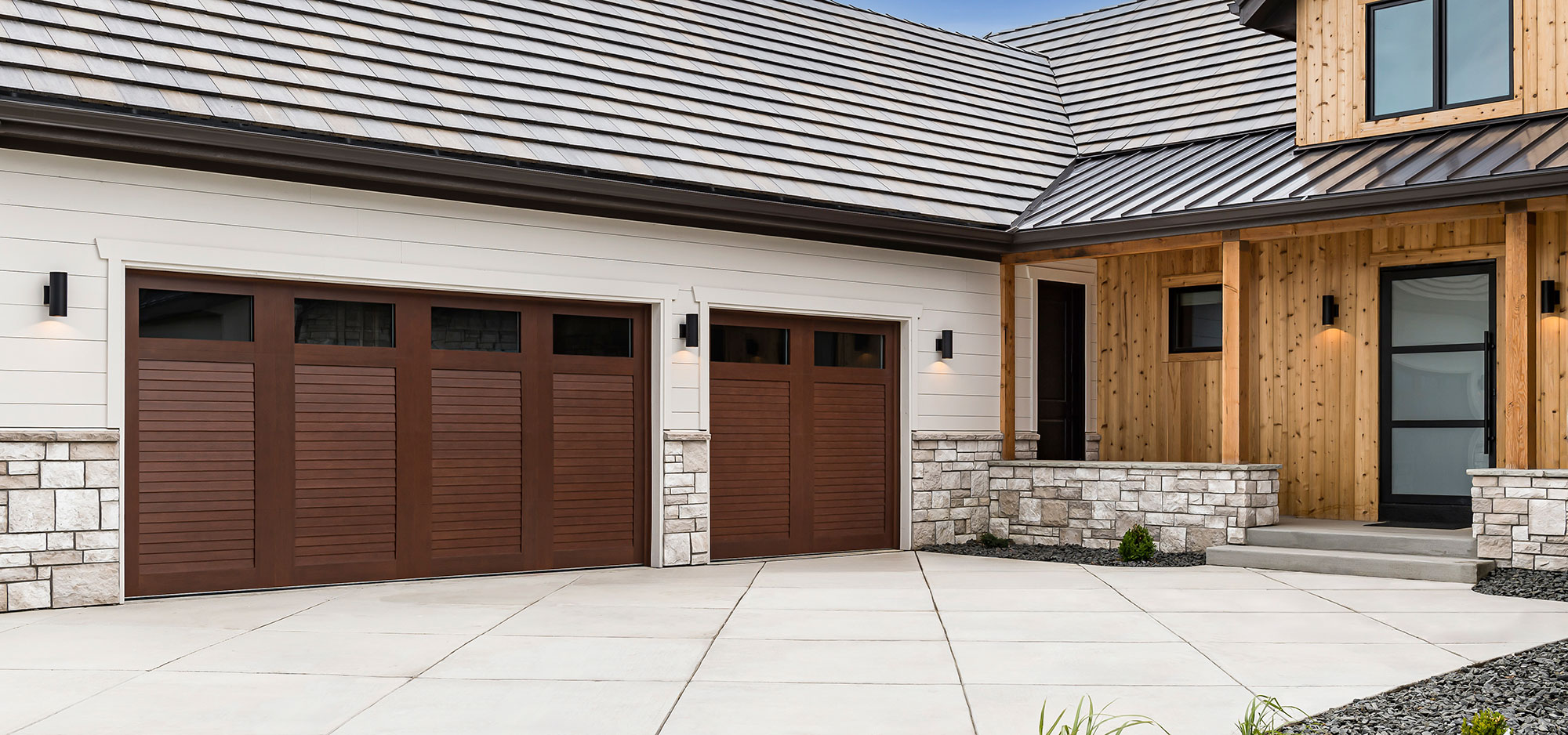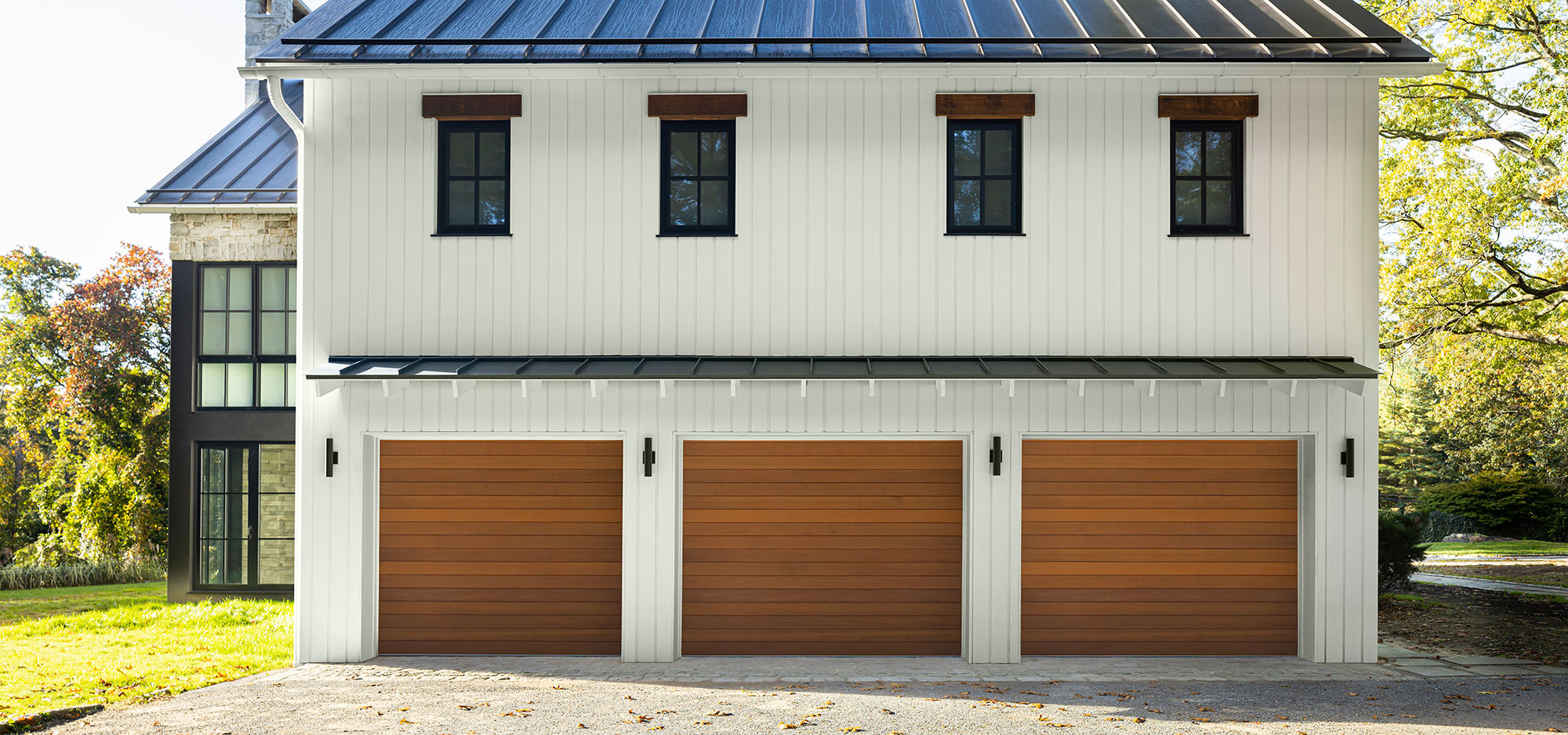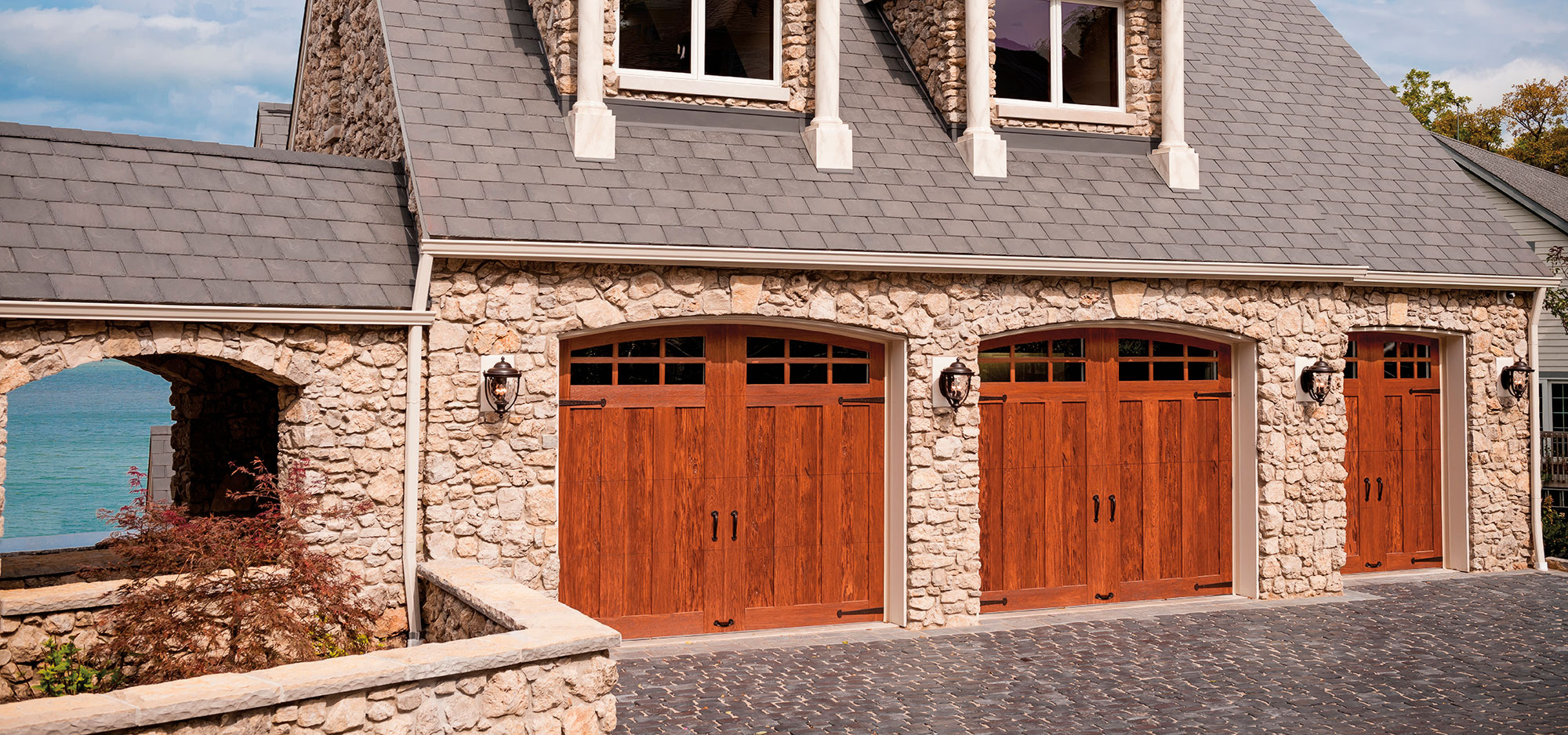
REAL WOOD VS. FAUX WOOD GARAGE DOORS
Is your garage door looking a bit worse for wear and in need of a replacement? When it comes to choosing the right material for your new door, you might be curious about the differences between real wood and faux wood options. By taking a closer look at the benefits of each type of door, you can select the perfect material to complement the style and architecture of your home.
THE DIFFERENCE BETWEEN REAL WOOD AND FAUX WOOD GARAGE DOORS
Real wood garage doors, as the name implies, are made from natural wood. The type of wood can vary, but popular varieties include Cedar, Redwood, Fir and Meranti.
Faux wood doors may look like real wood but are instead constructed using a steel base and topped with composite overlays molded from actual wood. The result is a wood-look door that provides the same warmth and charm as a natural wood garage door but without as much upkeep.

THE BENEFITS OF REAL WOOD
In the world of garage door materials, natural wood is considered a premium option. The biggest benefits of real wood include:
- Style: Wood doors offer a unique texture and visual appeal with every door. The natural wood patterns are challenging to replicate and provide a level of character and style that's hard to find elsewhere. From up close and from the curb, real wood doors have an undeniable aesthetic quality.
- Durability: Solid wood is a durable material, so it can withstand years of heavy wear.
- Customizable: With so many woods and stains to choose from, you have more control over the look of a real wood door. You also have the freedom to add design elements such as windows, panel sections and much more. At Clopay®, our Reserve® Wood Custom doors are a prime example of the full design freedom you have with real wood.
CONSIDERATIONS FOR REAL WOOD
Before purchasing a solid wood door, consider the following factors:
- Cost: As a premium material, real wood usually comes at a premium cost. Given the customization, durability and style of these doors, the price is well worth what you get in return. However, if you're working with a tight budget, a natural wood door may not be the best fit.
- Climate: When selecting the wood for your door, consider the general climate in your area, especially if you live somewhere with high humidity. Some species can withstand moisture better than others. Your door should also have a protective coating to improve its weather resistance.
- Maintenance: Solid wood requires regular upkeep. When you have a solid wood door installed, make sure to schedule annual maintenance to keep it in the best possible condition. We recommend regular maintenance for all garage doors, but it's especially important for maintaining the beauty of real wood.

Faux wood doors offer various benefits, including:
- Value: Without the premium solid wood materials, you won't have to pay the premium price. Plus, faux wood doors use other reliable materials like steel and composite, reducing the amount of upkeep that's typically required of natural wood doors.
- Durability: Metals like steel offer excellent durability, so you can expect your door to last through years of weather and wear. With added layers of insulation, these doors can also provide excellent energy efficiency to keep your garage cool in the warmer months and warmer in the colder months.
- Maintenance: Faux wood doors have fewer maintenance requirements compared to real wood garage doors.
- Versatility: Our faux wood door series range from traditional to contemporary styles for versatility. Doors like Canyon Ridge® Carriage House (5-Layer) offer the charm of carriage house doors while Canyon Ridge® Modem provides a sleek faux wood design.
IS REAL WOOD OR FAUX WOOD RIGHT FOR YOU?
Finding the right door for you comes down to your priorities and preferences. If a unique design and genuine wood grain are the most important factors, natural wood is the way to go. If you like the idea of wood but prefer fewer maintenance requirements and a lower price tag, faux wood is ideal.
When comparing the two, ask yourself the following questions:
- What is my budget for my replacement garage door?
- Am I willing to commit to maintenance demands?
- What type of climate do I live in?
- What vision do I have for my door's design?